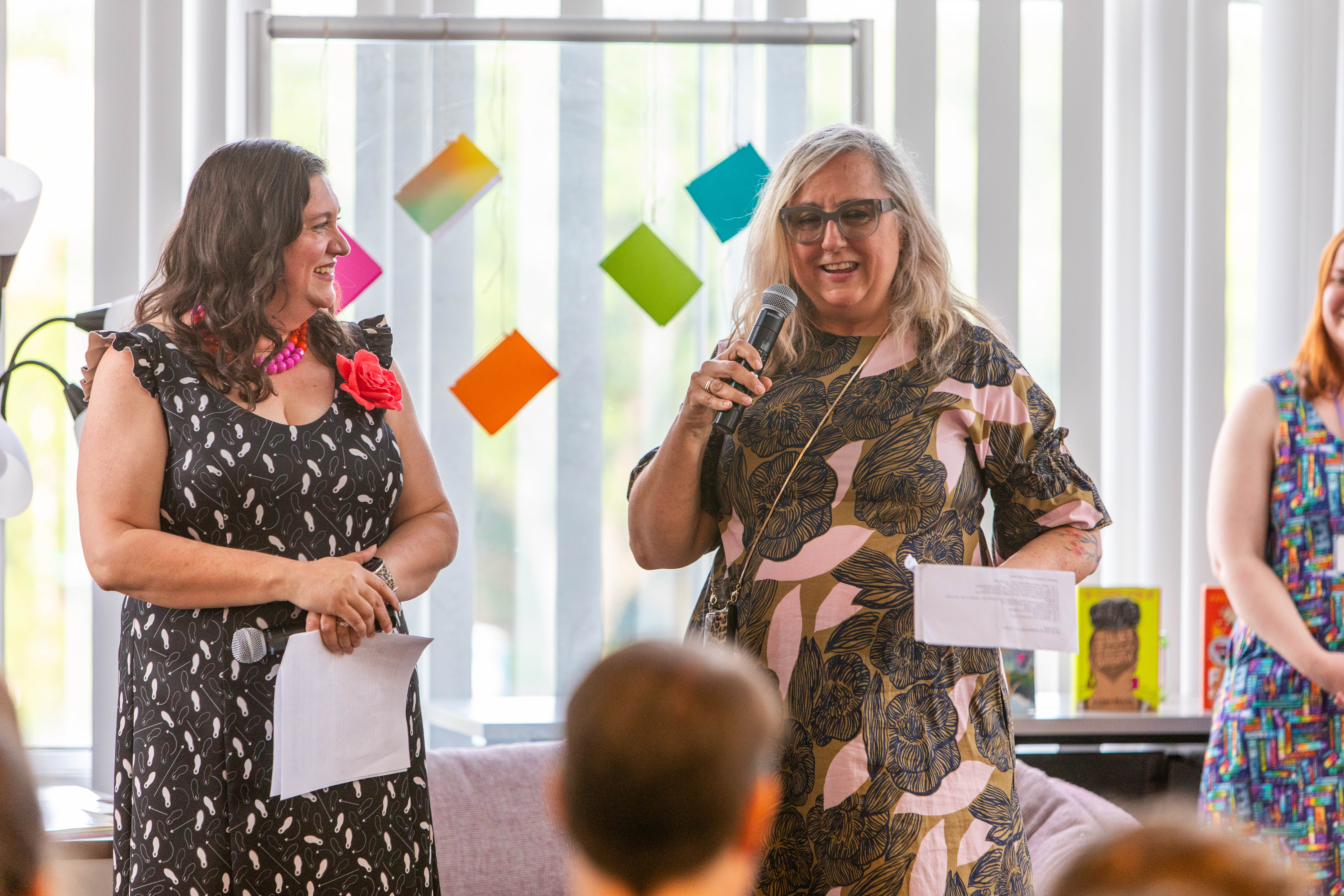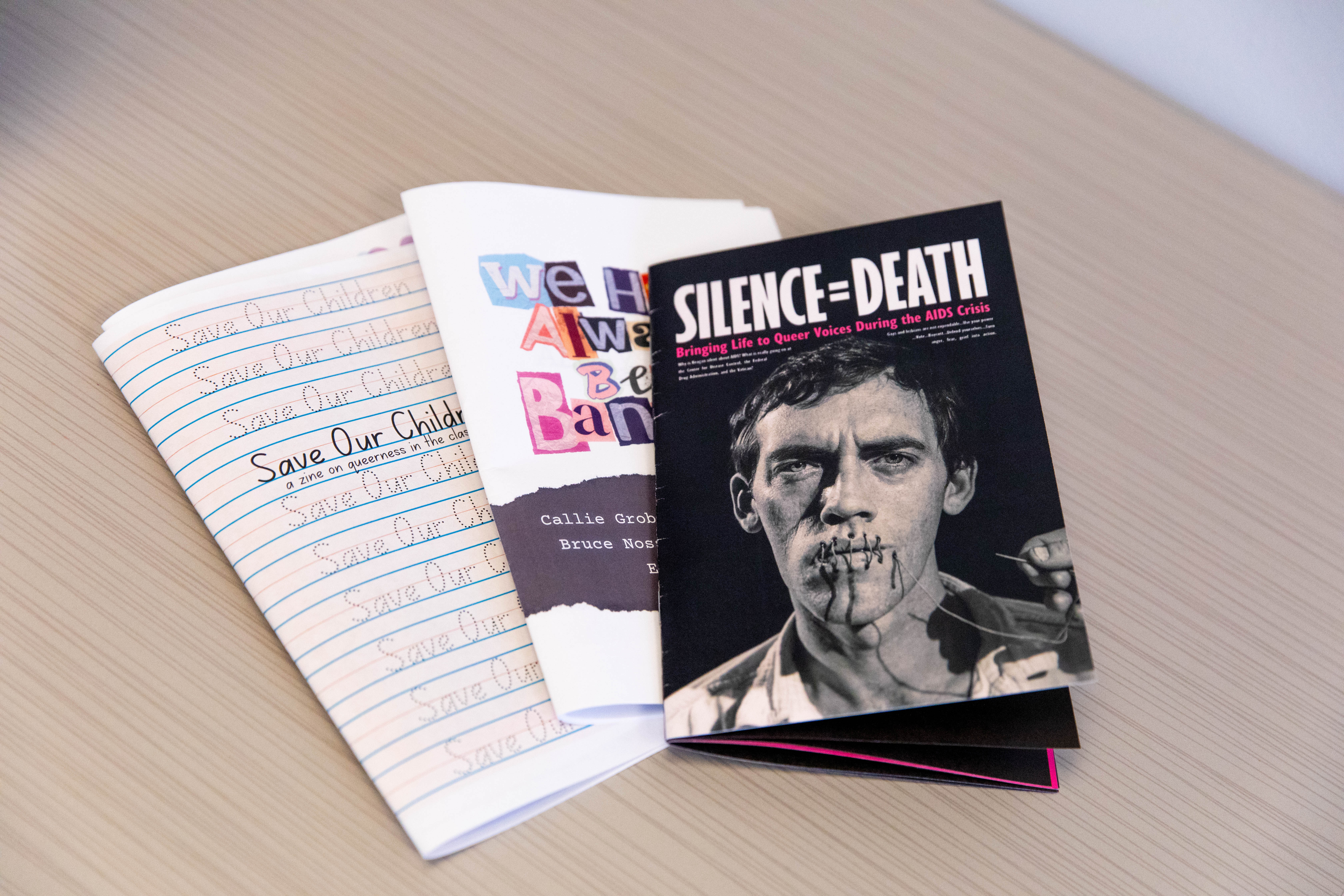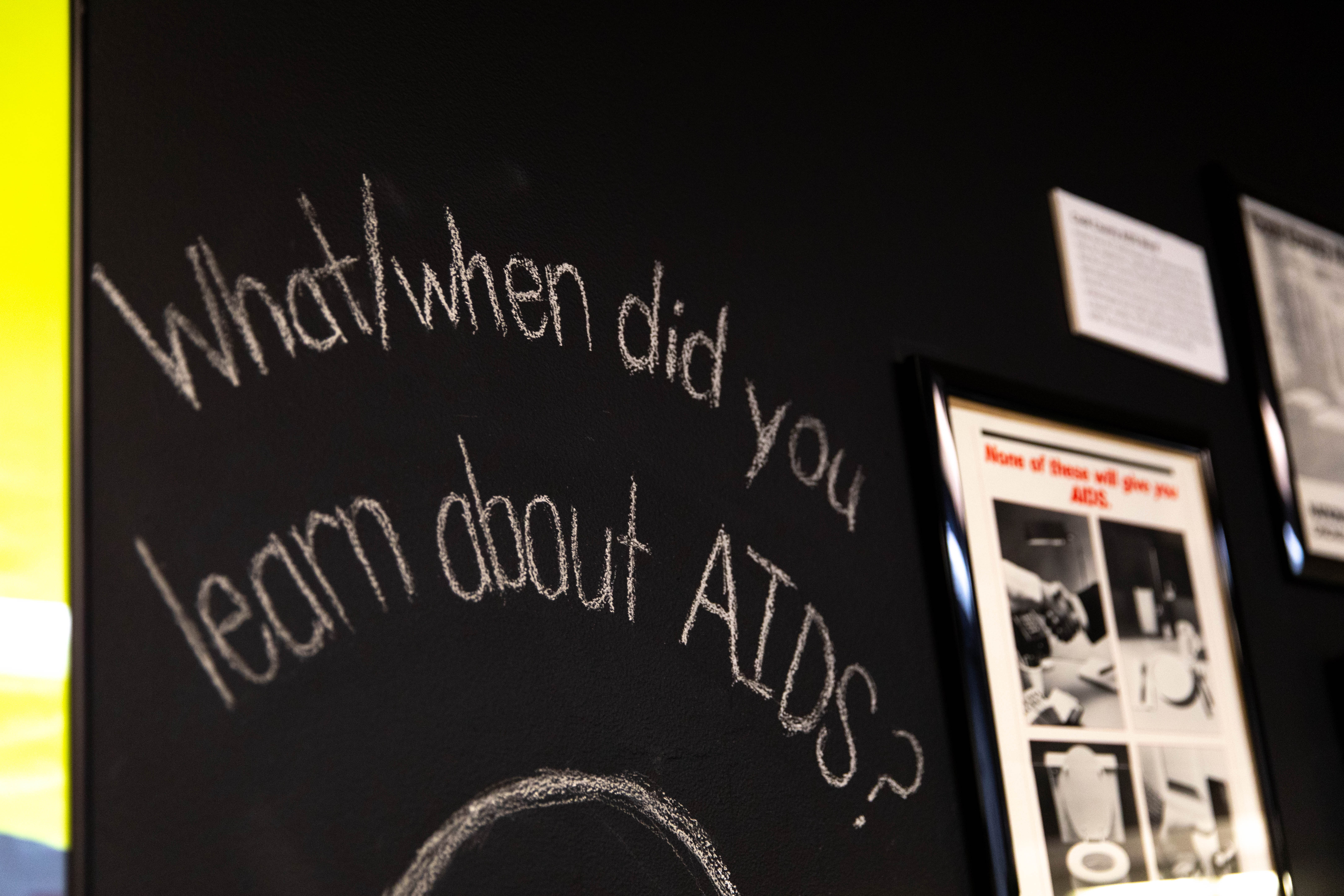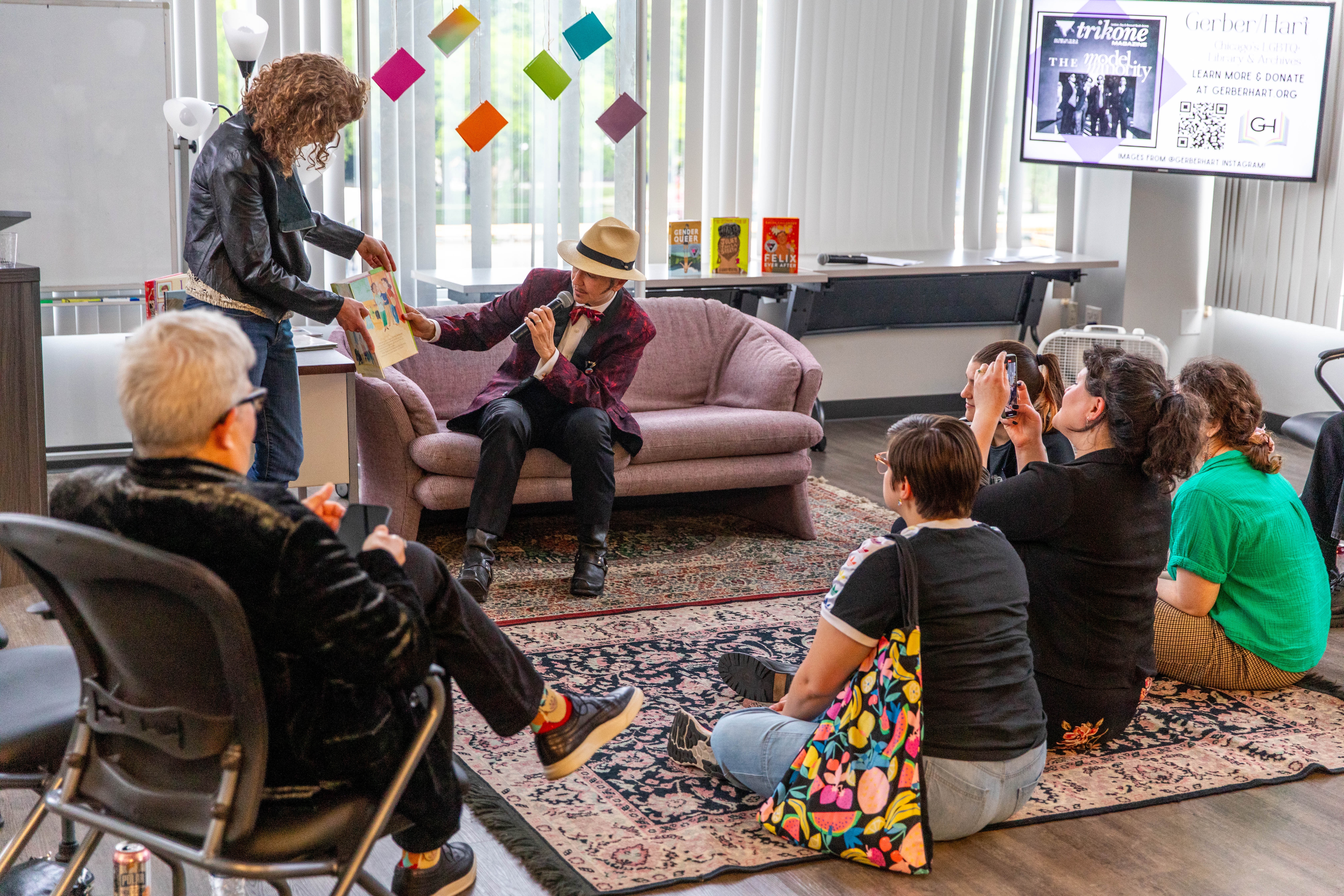
Co-instructors Barrie Borich and Heather Montes Ireland each brought unique perspectives to the instruction of "Do Say Gay." (Keeton Holder/DePaul University)

Each group created a zine to accompany their section of the exhibit. (Keeton Holder/DePaul University)

Exhibit attendees are invited to contribute to the exhibit by sharing their own experiences. (Keeton Holder/DePaul University)

Local drag performer Cougar Pete read a selection of challenged children's books as part of the exhibit opening. (Keeton Holder/DePaul University)
Heather Montes-Ireland and Barrie Jean Borich designed the “Do Say Gay: Banned Books and LGBTQ+ Freedoms” course to challenge the idea that books with LGBTQ+ topics should be out of reach. The course is part of the College of Liberal Arts and Social Science’s
HumanitiesX collaborative, which unites DePaul classes with community partners. These interdisciplinary courses highlight the need for community connection in the humanities.
“Our students in 'Do Say Gay' learned how censorship, book challenges and bans have a long history in the U.S., and to resist them is necessarily tied to the democratic project,” says Montes-Ireland, an assistant professor of women’s and gender studies and critical ethnic studies. “To read literature that celebrates queer and trans existence is to affirm our lives — and it is also a powerful way to resist social and political exclusion.”
While researching community partnerships for “Do Say Gay,” Montes-Ireland and Borich immediately thought of the
Gerber/Hart Library and Archives. Located in Rogers Park, Gerber/Hart is a library that also serves as a community space and repository of Midwest LGBTQ+ history.
“The experiences I’ve had with archives was looking at old books and copies of texts,” says Taylor Sellers-Varela, a student fellow for HumanitiesX. “Then we went to Gerber/Hart, and their archive is filled with people who are like me. They have these collections from real people's lives, and it gave me a new perspective on using an archive to preserve and uplift voices.”
The course explored theories around book banning in the classroom with trips to Gerber/Hart each week to interact with archival materials. The 19 students in “Do Say Gay” read multiple banned books throughout the 10-week class, and many were shocked at the challenged titles.
“So many queer people of color are the ones in particular whose works are being banned,” Montes-Ireland says. “Students are asking, ‘Why would people want to ban social justice? Why would they want to ban that?’”
For most of the quarter, students collaborated on a public exhibit on LGBTQ+ freedom at Gerber/Hart. Students had access to the archives and knowledge of Gerber/Hart librarians to create the exhibit which champions the LGBTQ+ community and freedom of information. Frequently banned books such as "Gender Queer” by Maia Kobabe and “Juliet Takes a Breath” by Gabby Rivera are featured prominently.
“Gerber/Hart has been so amazing,” says Borich, a professor of English and director of the LGBTQ+ Studies program. “They took the concept of the class and quadrupled it with a great deal of collaboration and engagement.”
Student groups created the exhibit based on four topics: “Open Books, Open Minds,” “We Have Always Been Banned,” “Save Our Children” and “Silence=Death.”
Each group created a portion of the exhibit, which opened June 7. The sections include artifacts from Gerber/Hart’s archives including posters, books, news clippings and more. One group opted to show how the LGBTQ+ community has persevered by creating a replica of a gay bar, while another created a model of a classroom that would uplift and affirm children.
Students and faculty involved in the project want to see more courses like this in the future.
“I would want people to take away that humanities education is so important and can be translated really easily into this kind of hands-on work in our communities,” Sellers-Varela says. “You can't have a society without the humanities.”